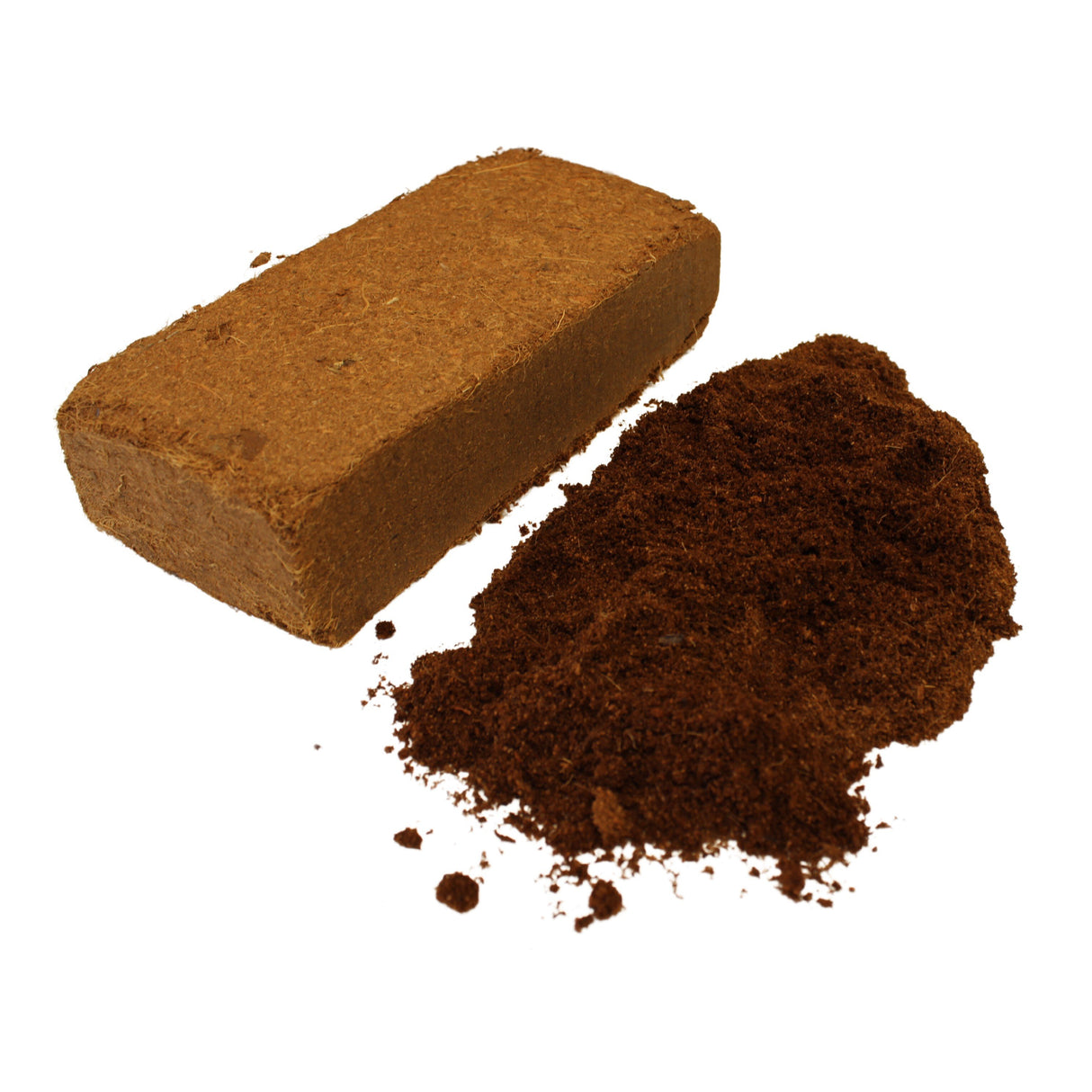Coco Coir Brick Pair - Creates 18 Litres of Compost
Coco Coir Brick Pair - Creates 18 Litres of Compost is backordered and will ship as soon as it is back in stock.
Coco coir bricks,are a sustainable, organic and peat-free alternative to traditional compost and soil replenishers.
Coir is created using the husk of coconuts, making it a renewable and eco-friendly resource. Coir decomposes over time and leaves minimal impact on the environment which makes it a better alternative to soil improvers that cause damage by polluting the environment due to long-term breakdown.
The coir is organic, contaminant-free and re-wets easily, it implements essential nutrients into the soil and provides disease and pest resistance, further strengthening the plant life systems.
Most known for its incredible water-retention capabilities, Coir is the perfect medium to store water and retain moisture while maintaining a good level of aeration within the soil which is vital for root growth and development. It has a pH between 4.5 and 6.5, meaning that it provides a stable environment and a blank canvas, allowing for future customisation of soil levels as needed.
For use in potted plants, raised beds and just about anywhere where soil could do with some rejuvenation. The coir is pleasant to handle and will not blow away in the wind.
Simply add water slowly to the brick until the coir brick is damp to the touch. The bricks can also be broken apart and added to already wet soil to soak up extra moisture and prevent waterlogging. The bricks can be added directly to the soil top.
Each brick makes up to 9 Litres of compost once soaked.
Pack of 2 Bricks
Each Brick Dimensions: L: 19.5cm x H: 4.5cm x D: 9cm
Reviews
Reviews
How To Use
How To Use
We suggest using a large bowl, bucket or watertight wheelbarrow.
1. Add 3 litres of warm water per coir brick.
2. Allow the Coir brick 24 hours to absorb the water - they can expand as much as three times their original size, this will even out he water content of the coconut coir.
3. Using a trowel, gardening fork or by hand, break up the coir material.
4. Use the coir material as required.





